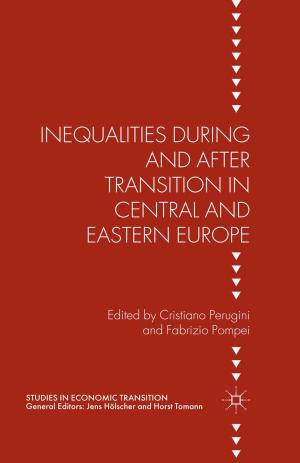Nobody's Law
Legal Consciousness and Legal Alienation in Everyday Life
Nonfiction, Reference & Language, Law, Reference, Social & Cultural Studies, Social Science, Crimes & Criminals, Criminology| Author: | Marc Hertogh | ISBN: | 9781137603975 |
| Publisher: | Palgrave Macmillan UK | Publication: | June 14, 2018 |
| Imprint: | Palgrave Pivot | Language: | English |
| Author: | Marc Hertogh |
| ISBN: | 9781137603975 |
| Publisher: | Palgrave Macmillan UK |
| Publication: | June 14, 2018 |
| Imprint: | Palgrave Pivot |
| Language: | English |
Nobody’s Law shows how people – who are disappointed, disenchanted, and outraged about the justice system – gradually move away from law. Using detailed case studies and combining different theoretical perspectives, this book explores the legal consciousness of ordinary people, businessmen, and street-level bureaucrats in the Netherlands. The empirical research in this study tells an original and alternative narrative about the role of law in everyday life. While previous studies emphasize the law’s hegemony and argue that it’s ‘all over’, Hertogh shows that legal proliferation makes it harder for people to know, and subsequently identify with, the law. As a result, official law has become increasingly remote and irrelevant to many people. The central finding presented in this highly topical text is that these developments signal a process of ‘legal alienation’— a gradual and mundane process with potentially serious consequences for the legitimacy of law. A timely and original study, this book will be of particular interest to scholars in the fields of law and society, socio-legal studies and legal theory.
Nobody’s Law shows how people – who are disappointed, disenchanted, and outraged about the justice system – gradually move away from law. Using detailed case studies and combining different theoretical perspectives, this book explores the legal consciousness of ordinary people, businessmen, and street-level bureaucrats in the Netherlands. The empirical research in this study tells an original and alternative narrative about the role of law in everyday life. While previous studies emphasize the law’s hegemony and argue that it’s ‘all over’, Hertogh shows that legal proliferation makes it harder for people to know, and subsequently identify with, the law. As a result, official law has become increasingly remote and irrelevant to many people. The central finding presented in this highly topical text is that these developments signal a process of ‘legal alienation’— a gradual and mundane process with potentially serious consequences for the legitimacy of law. A timely and original study, this book will be of particular interest to scholars in the fields of law and society, socio-legal studies and legal theory.















